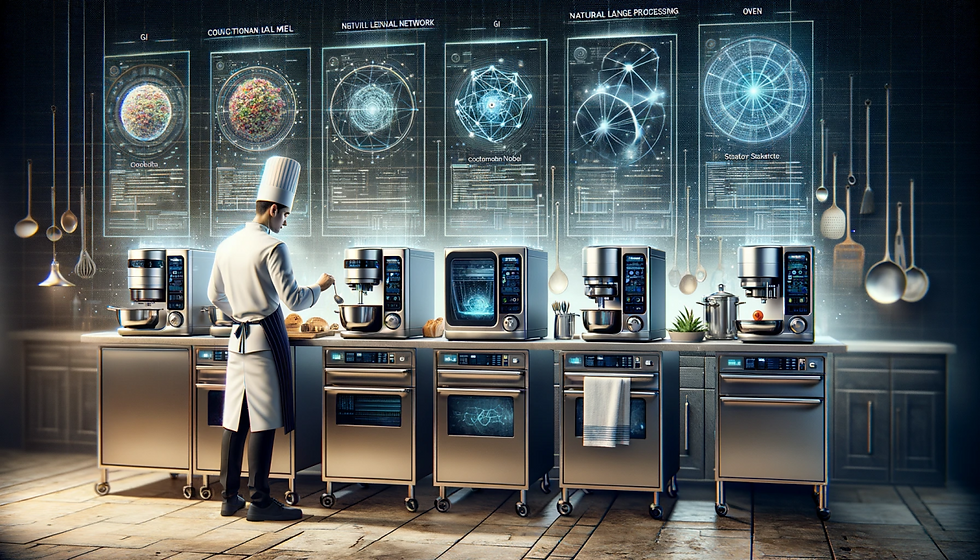
Kenneth Hallwachs
Apr 28, 2024
The AI Revolution in Restaurant Operations
Artificial Intelligence (AI) is set to revolutionize the back-of-house operations in the restaurant industry over the next five years, ushering in a new era of efficiency and optimization. One significant development will be the widespread adoption of AI-powered inventory management systems. These systems will leverage predictive analytics based on historical data, supplier information, and current demand trends to anticipate ingredient usage. AI will streamline operations and reduce food waste by automating inventory replenishment and minimizing overstocking or shortages. A study by Oracle predicts that AI-driven inventory management solutions will become commonplace in 70% of restaurants within the next five years.
AI-driven production planning and scheduling tools will optimize kitchen workflows and enhance productivity. AI algorithms will generate optimized production schedules to ensure timely and efficient meal preparation by analyzing menu popularity, preparation times, and staffing levels. This will enable restaurants to reduce wait times, improve order accuracy, and enhance overall customer satisfaction. A report by McKinsey & Company estimates that AI-driven production planning can increase kitchen efficiency by up to 30% within the next five years.
Additionally, AI-powered kitchen automation systems will transform food preparation processes, freeing up chefs to focus on creativity and innovation. Robots equipped with AI vision systems will assist in chopping, slicing, and cooking, ensuring precision and consistency in every dish. These automation solutions will reduce labor costs and elevate food quality and safety standards. A study published in the International Journal of Advanced Computer Science and Applications forecasts that AI-driven kitchen automation will lead to a 25% reduction in food preparation time and a 20% decrease in food waste by 2025.
The future of AI in the restaurant back of house is poised to transform prep, inventory management, production, and other essential tasks. By leveraging AI technologies, restaurants can optimize operations, minimize waste, and enhance the overall dining experience for customers. However, successful implementation will require training, infrastructure, and technology integration investment. As AI continues to evolve, it will empower chefs and kitchen staff to deliver exceptional culinary experiences while driving efficiency and profitability in the restaurant industry.
1. Oracle. (2022). Restaurant 2025: Oracle Hospitality Research Reveals Top Technology Trends Shaping the Future of Restaurants. Retrieved from https://www.oracle.com/hospitality/resources/research/restaurant-2025/
2. McKinsey & Company. (2022). How artificial intelligence will boost the restaurant industry. Retrieved from https://www.mckinsey.com/industries/retail/our-insights/how-artificial-intelligence-will-boost-the-restaurant-industry
3. International Journal of Advanced Computer Science and Applications. (2023). AI-driven kitchen automation for enhanced efficiency and food safety.